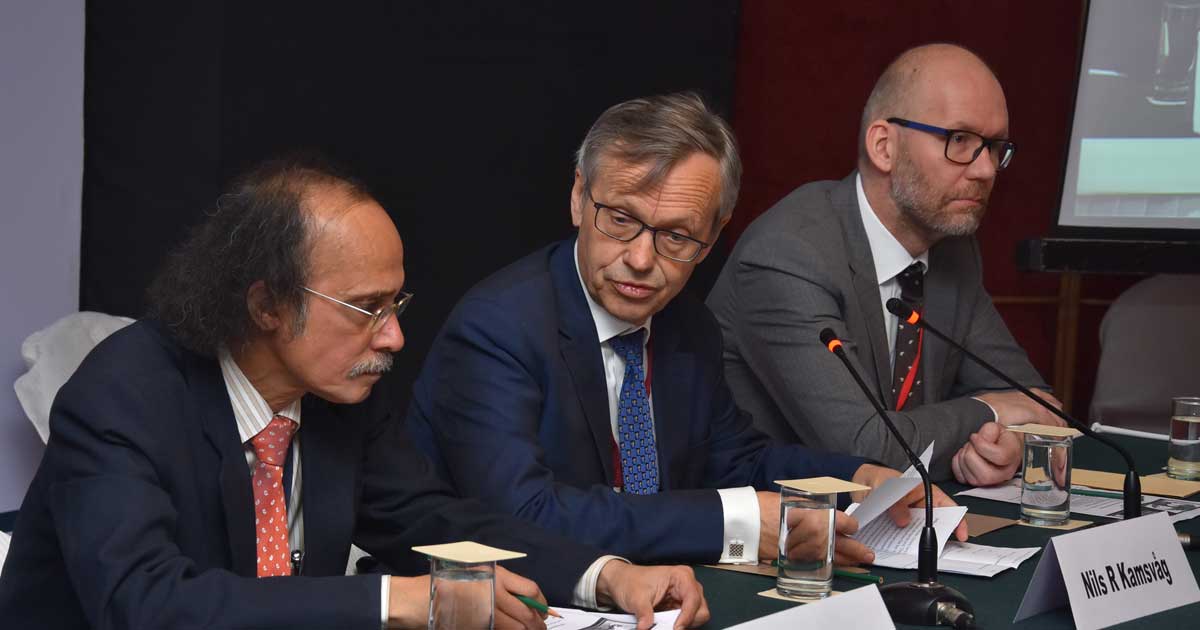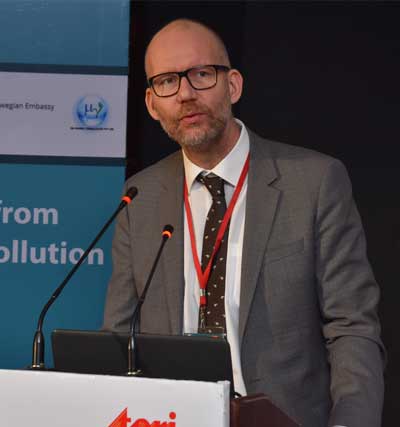
Guarding India's Oceans from the Chemical - Plastic - POPs Cocktail
 Ambassador Nils R Kamsvag, Royal Norwegian Embassy calling for robust Indo-Norwegian collaborations on waste mitigation
Ambassador Nils R Kamsvag, Royal Norwegian Embassy calling for robust Indo-Norwegian collaborations on waste mitigation
“How inappropriate to call this planet ‘Earth’ when it is clearly ‘Ocean’”. The quote very aptly articulates the importance of the ocean as our life support system.
With over billions of tonnes of waste dumped into the world’s oceans every year, the impact on marine and human lives is unprecedented. Management and mitigation of this waste, therefore, cannot be dealt in silos.
Norway’s mitigation strategy
The WSDS 2018 session on “Protecting Oceans from Chemical and Plastic Pollution”, therefore, invoked the spirit of cooperation within and between countries. Asking for a “consolidated approach” Mr Nils R Kamsvag, Norway’s Ambassador to India identified the need for cooperation between the two countries in areas, such as waste management and sustainable fisheries. Norway attributes its progress in tackling the issue at the regional and national levels to advanced strategies of sound waste management, extended producer responsibility, and beach cleansing—all replicable for other countries. At the heart of its oceanic strategy is stakeholder awareness, Ms Anne Marrie Mo Ravik from the Norwegian Environment Agency said.
“Pollution of the ocean comes mainly from the land”
 Prof. Thorjorn Larssen of Norwegian Institute of Water Research (NIVA) on land-ocean interaction and impact of marine litter
Prof. Thorjorn Larssen of Norwegian Institute of Water Research (NIVA) on land-ocean interaction and impact of marine litter
The use of pesticides in agriculture, harmful release from industries, run-off from cities, release from natural environments, and our daily activities all contribute to marine pollution, Professor Thorjorn Larssen, Research Director at the Norwegian Institute of Water Research (NIVA) said. To address this, the world today needs to cut down on the use of products that utilize harmful pollutants and manage waste in current water resources and resource recovery.
The power of implementation
Four global conventions for oceanic pollution mitigation have been partly successful—Basel, Rotterdam, Minamata, and Stockholm conventions. Towards implementation, India’s National Implementation Plan (NIP) has identified priority areas, of which developing infrastructure, technical and analytical capabilities through focus groups are primary, Dr Asha Juwarkar, FNASc, CSIR—National Environmental Engineering Research Institute, said.
One of the most significant feats of convention implementation the nation has seen is the successful phasing out of mercury from Chlor-Alkali plants, despite no regulation on the mercury trade in India. This is the success of the Minamata Convention, which deals addresses mercury demand and supply, said Satish Sinha, Associate Director at policy advocacy group Toxics Link.